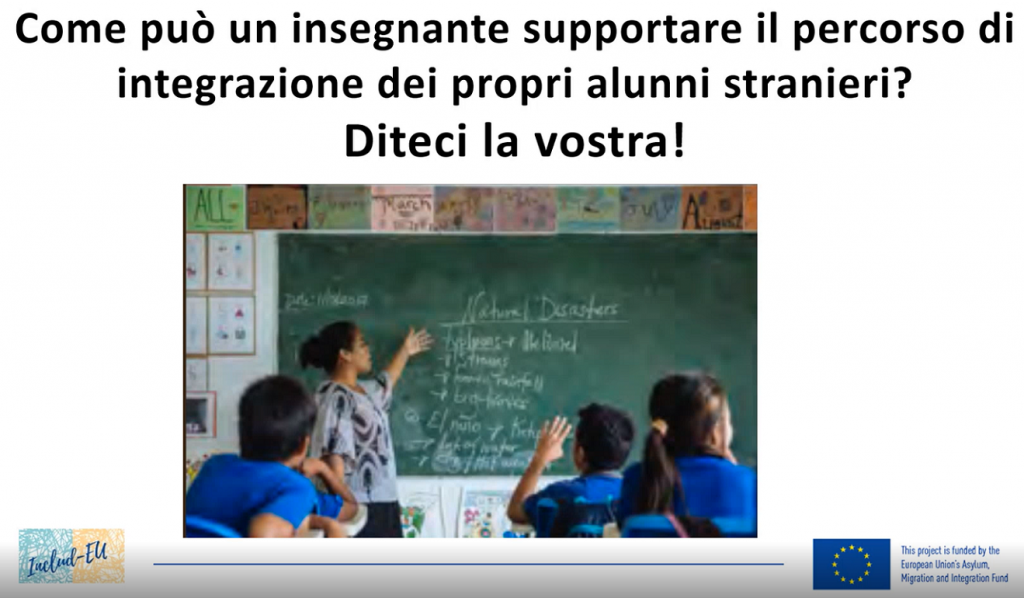News
Training on interaction strategies with students and families with a migration background
Useful strategies to interact with students and families with a migration background.

On the 9th of February 2022, the fifth session of the Includ-EU capacity-building program aimed to share with the group of over thirty Sardinian teachers some useful strategies to interact with students and families with a migration background.
The participants were encouraged to share their views on how teachers can support the integration process of their students with a migration background and some attendees talked about their experiences and some successful activities that they implemented in their schools. The teachers could later reflect on how their own culture can influence the way they interpret the behaviors of their students with a migration background and on the importance of taking an objective descriptive approach as suggested by the authors of the Mindful Reflection Protocol.
The second part of the training focused on the best interaction strategies with the parents of students with a migration background. After the participants shared their experiences, the session highlighted the challenges that parents with a migration background may face when they navigate an unfamiliar education system, including the differences in the way the role of teachers is culturally perceived and language barriers, and what strategies teachers can put in place to support them, foster their empowerment (e.g. by encouraging them to ask questions about the education system of the hosting country, by letting them choose how they feel more comfortable to communicate to teachers – in writing rather than in person -, and by providing a list with useful words and definitions before parent-teacher conferences) and help them play an active role in their children’s education.
The teachers actively contributed to the fifth session of the training by sharing their experiences and challenges in multicultural classrooms with their colleagues from the other schools involved in the Includ-EU capacity-building program. Some teachers described some of the activities that they implemented in their multicultural classrooms to facilitate the integration of students with a migration background and their learning process, mostly based on cooperative learning, peer learning, games and the use of non-verbal language, and most participants highlighted the need for language and cross-cultural mediation services in schools to improve communication and reduce cultural barriers with non-Italian families.
Do you want to share your project with our community and stakeholders?